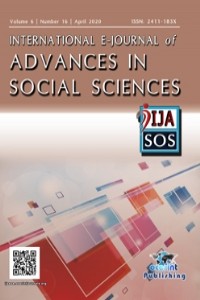Abstract
The given research is devoted to studying of the Russian and English compound names as unique source of the language information on Russian and English concept of the unreal world. The phraseological and paremic units of the language carry not only the actual language information, but also reflect the facts of social life, material and spiritual culture of the ethnic group. In this regard, of special interest for the study are established combinations which include lexemes with the archiseme “злой дух” (evil spirit) and its derivatives. The analysis of the phrasicon of the Russian language showed that at present there are more than three hundred units of this category in it. The object of conceptual analysis in our research are compound names with components “чёртов/бесов” (devil’s), “чертовский/бесовский” (devilish), “чёрт/дьявол” (devil). Based on the analysis of the internal form of the above composite names we can assume that the composite names under review serve to designate a special kind of realia that have specific features: these are weeds, poisonous plants or plants with characteristic morphological features (spines); fish and mammals with characteristic features of appearance (spines, corniculate spines), predators; people with qualities negatively assessed by members of the speech community. Therefore, we can make a conclusion that according to the beliefs of Russian people the evil spirit was involved in the creation of realia and the Russian language uses the phraseological units of this type for the nomination. The evil spirit had the same properties of appearance or character, which are inherent in the objects of the nomination. The involvement of the material in English also contributes to the verification of the conclusions. Thus, the English language has a large array of phraseological units-phytonyms which include components devil and devil's. Generally, attributive relations develop between the components of phraseological units of this type. In this case, the lexeme devil can function as both the determinant and the determinable element. As the determinant of lexical units devil and devil's develop a number of the unique proprietary meanings: “sour”, “prickly”, “poisonous”, “witchy”. These English phytonyms in the same way as the Russian compound names are used to refer to a particular range of plants with a number of the specific characteristics. These are weeds or poisonous plants, parasitic plants, plants with spines. In our opinion, this fact bears witness to some commonality of ideas about the surreal world among Russian and English speakers and can be confirmed by the presented language material.
References
- Romanova, T. N., Fedorova, N. A. (2014). Linguistic and cultural aspect of Proverbs with components-names of flour products (on the material of Russian, Ukrainian and Chuvash languages). Readings dedicated To the days of Slavic writing and culture.
- Teliya, V. N. (1996). Russian phraseology. Semantic, pragmatic and linguocultural aspects.
- Phraseological dictionary of the Russian language (1987).
Abstract
References
- Romanova, T. N., Fedorova, N. A. (2014). Linguistic and cultural aspect of Proverbs with components-names of flour products (on the material of Russian, Ukrainian and Chuvash languages). Readings dedicated To the days of Slavic writing and culture.
- Teliya, V. N. (1996). Russian phraseology. Semantic, pragmatic and linguocultural aspects.
- Phraseological dictionary of the Russian language (1987).
Details
| Primary Language | English |
|---|---|
| Journal Section | Research Article |
| Authors | |
| Publication Date | September 10, 2020 |
| Submission Date | March 10, 2020 |
| Published in Issue | Year 2020 Volume: 6 Issue: 16 |
Contact: ijasosjournal@hotmail.com
The IJASOS Journal's site and its metadata are licensed under CC BY
Published and Sponsored by OCERINT International © 2015- 2025

